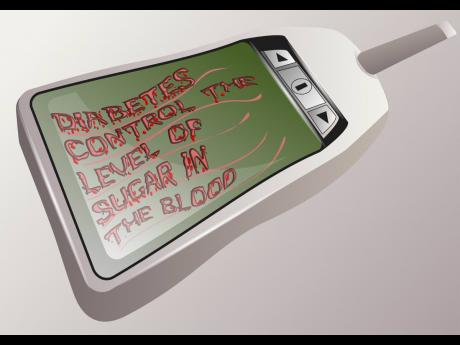Managing diabetes for the new year
Diabetes mellitus, commonly known as diabetes, is a metabolic disease that causes high blood sugar. The hormone insulin moves sugar from the blood into your cells to be stored or used for energy. With diabetes, your body either does not make enough insulin or cannot effectively use the insulin it does make.
Untreated high blood sugar from diabetes can damage your nerves, eyes, kidneys, and other organs.
Type one diabetes is an autoimmune disease. The immune system attacks and destroys cells in the pancreas, where insulin is made. It is unclear what causes this attack; however, about 10 per cent of people with diabetes have this type.
Symptoms of type one diabetes can include, extreme hunger, increased thirst, unintentional weight loss, frequent urination, blurry vision, tiredness, and it may also result in mood changes. Genes may play a role in some people. It is also possible that a virus sets off the immune system attack.
Insulin is the main treatment for type one diabetes. It replaces the hormone your body is not able to produce. There are four types of insulin that are most commonly used and they are differentiated by how quickly they start to work, and how long their effects last.
• Rapid-acting insulin starts to work within 15 minutes and its effects last for three to four hours
• Short-acting insulin starts to work within 30 minutes and lasts six to eight hours
• Intermediate-acting insulin starts to work within one to two hours and lasts 12 to 18 hours
• Long-acting insulin starts to work a few hours after injection and lasts 24 hours or longer
Healthy eating is a central part of managing diabetes. In some cases, changing your diet may be enough to control the disease.
For type one diabetes, your blood sugar level rises or falls based on the types of foods you eat. Starchy or sugary foods make blood sugar levels rise rapidly, while protein and fat cause more gradual increases.
You can limit the amount of carbohydrates you eat each day and you will also need to balance your carb intake with your insulin doses. You can also work with a nutritionist who can help you design a diabetes meal plan. Getting the right balance of protein, fat, and carbs can help you control your blood sugar.
All people with diabetes should be reviewed at least annually and more frequently if there are any factors which may cause concern to the patient or their doctor. The aim of regular review should be to assess and decrease the risk of known complications of diabetes, such as peripheral arterial disease, nephropathy and retinopathy.
A review appointment may involve many healthcare workers, such as the dietician, optometrist, podiatrist or other appropriately trained members of staff.
FACTS:
• Without insulin replacement, people with type one diabetes are likely to die within days or weeks.
• With insulin replacement, people with type one diabetes can participate normally in the usual activities of daily life but are at risk of complications.
• The risk of disability associated with complications is greatly reduced by adherence to a healthy lifestyle, good glucose, lipid and blood pressure control and early detection and management of any complications.
SOURCE: Centers for Disease Control and Prevention


